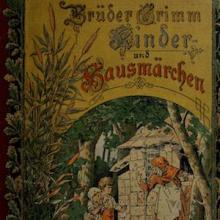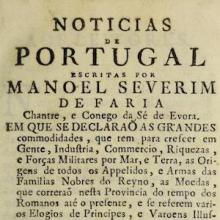Europe
Short Teaching Module: Jewish Children & the Holocaust
Originally published in Polish by the Jewish Historical Commission in Cracow in 1946 and republished in English in 1996 by the British publisher Vallentine Mitchell, The Children Accuse is required reading about the early postwar testimonies of Jewish children in Poland.
Lech Walesa's Plans for the Roundtable Talks
In September 1988, Lech Walesa, leader of Poland's Solidarity Movement and later president of Poland following the collapse of communism (1990-1995), wrote this document a few months prior to the historic Roundtable Talks between party and state officials and the opposition that eventually took p
Short Teaching Module: Russian Youth and Masculinity (19th c.)
Autobiographical writing as a rich source for the exploration of European childhood and youth is self evident; in many cases, it is one of the most nuanced ways to understand historical actors' earliest experiences.

Short Teaching Module: Grimms' Children's and Household Tales
Folktales and fairy tales are excellent resources for dealing with historical topics related to children and youth.

Short Teaching Module: Orphans and Colonialism (17th c.)
The story of colonialism in the early modern era is generally told as one of adults—and primarily adult men—exploring, conquering, and transporting goods and ideas.
Short Teaching Module: Letter by the Bratislava Five
This teaching module addresses a protest in Bratislava during the summer of 1989 aimed at commemorating the anniversary of the Warsaw Pact invasion by publicly laying flowers at various locations in Slovakia where citizens had been killed in 1968.
Short Teaching Module: Czech Independence Day Speech
The dramatic changes in Eastern Europe happened so rapidly and over so broad an area that making these events understandable for students can be a challenge. This teaching module uses a landmark speech by Vaclav Havel as a means to unpack the rapid events of 1989.
Miscellaneous Jokes: GDR Jokes C
George Orwell once wrote, "Every joke is a tiny revolution." In state-socialist societies that had (or have) totalitarian characteristics, individuals found clever ways to carve out areas of freedom for themselves.
Excerpt from Anatoly Chernyaev's Diary
This personal account offers insight into the private sentiments of Anatoly Chernyaev, Mikhail Gorbachev's top foreign policy adviser in the 1980s.
Report on a Working Visit of Wojciech Jaruzelski to Moscow
Following the historic roundtable talks that took place in Poland from February to April 1989 between Communist and opposition leaders, Polish Communist leader Wojciech Jaruzelski met with Soviet leader Mikhail Gorbachev in Moscow to discuss the unfolding events in Poland and Polish-Soviet relati